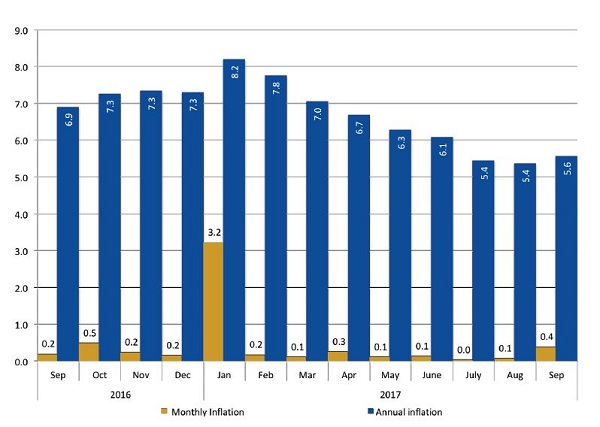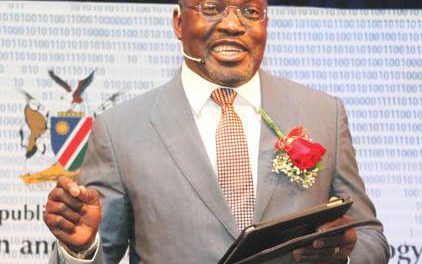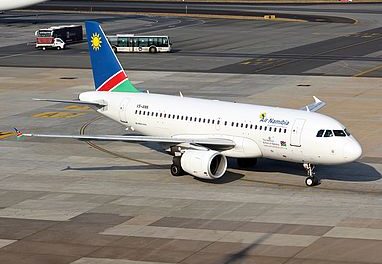
Headline inflation sends disturbing signal of underlying inflationary pressures continuing

Although one month is too short a period to determine a trend, headline inflation for September 2017 surprised on the upside rising by twenty basis points to 5.6% compared to August and July when monthly inflation, measured year on year, in both months stabilised at 5.4%.
However, compared to September 2016 when headline inflation measured 6.9%, the tempo of price growth has stalled considerably despite the month on month uptick.
In September 2017, the main drivers of the annual inflation rate were Housing, water, electricity, gas and other fuels (8.9 percent), Education (7.8 percent), Hotels, cafés and restaurants (6.2 percent) Health (5.9 percent) and Alcoholic beverages and tobacco (5.3 percent)” stated the Namibia Statistics Agency on Thursday morning when it released the September data for the Namibia Consumer Price Index.
Average annual inflation Year to Date now measures 6.5% which is exactly the same as the average annual inflation for January to September 2016. However, average annual inflation is expected to come down during the remainder of the year, as the effect of the generally lower 2017 inflation comes into play.
Except for January this year when monthly inflation jumped an unprecedented 3.2%, the 0.4% increase from August to September is the highest monthly increase so far this year.
“Despite a slight acceleration of price increases, we expect the annual inflation rate to remain below last year’s [average annual] inflation rate of 6.7%. Relatively modest price increases for food products remain good news, in particular for low-income earners and the poor who spend a much larger share of their income on food than the average Namibian household (16.5%). The decision to leave fuel prices unchanged in October will reduce price pressure on transportation costs with subsequent positive impact on the inflation rate in October” stated the Executive Director of the Economic Association of Namibia, Mr Klaus Schade.
Commenting on the price movements in the sub-categories that make up headline inflation, Mr Schade said “Price increases for services are this year the main inflation driver. Prices for services increased by 8.4% compared to September 2016. Service prices rose faster than prices for goods since January 2017.”
“Services account for 42.3% of the consumption basket. Consequently, price increases of services contributed 3.6 percentage points to the total inflation rate of 5.6%” he explained.
The highest monthly inflation for a sub-category was recorded for housing, water, electricity, gas and other fuels, which increased by 8.9% compared to September last year. Since this component has a 28.4% weighting in the inflation basket, it has a bigger impact on headline inflation than any of the other sub-components.
The consensus opinion among analysts is that the relatively lower and stable inflation reading will allow the Bank of Namibia some space for one more interest rate cut for the remainder of the year, but not at the immediate next assessment by the Monetary Policy Committee, due on 25 October 2017. This follows in the South African Reserve Bank’s footsteps who decided to keep the repo rate stable at 6.75% at its last meeting earlier this month.











































